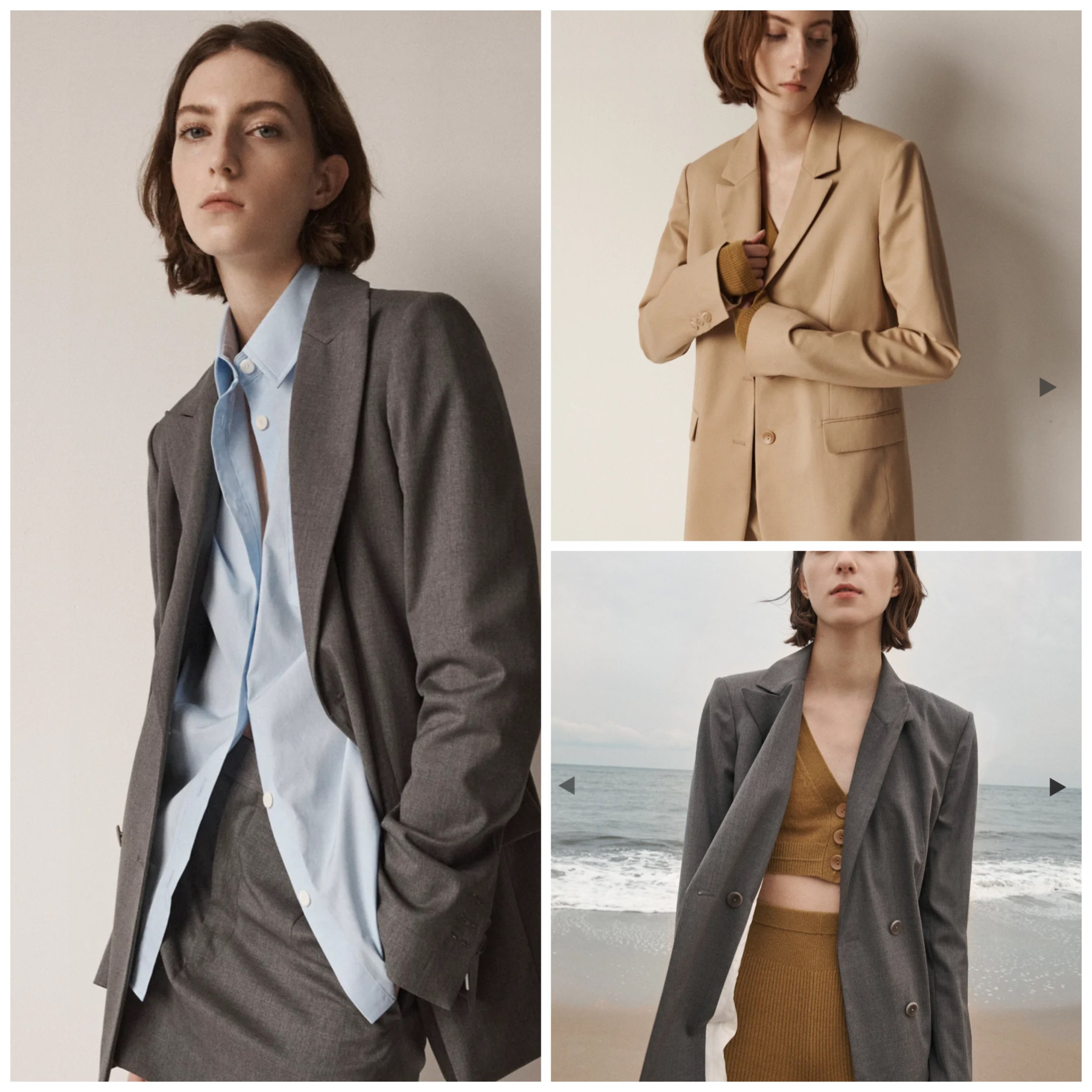Luxury Redefined– A Conversation with Maria Mcmanus
By Kinu Dadaille A natural elegance can be found in the pieces of Maria Mcmanus’ Summer 2022 collection. With earthen cool tones mixed with subtle shades of sky blue and the occasional appearance of acid yellow, it is clear that her clothing imitates the earth’s natural color palette. The combination of form-fitting and structurally draped styles designed for business-casual and everyday wear makes Maria McManus’s luxury brand a closet staple for the chic urban elite. However, the most unique selling point which distinguishes her brand from nearly all others can be found in the production of the clothing itself.
In an interview with Mcmanus, I posed the question of how she defines luxury and its meaning within the context of her brand. In her words, she expressed;
‘In my mind, luxury is really cutting the time and resources that go into making a garment, while still ensuring that it can last and that people are paid a fair living wage.’
This ethos by which the company stands by is not simply another addition to the myriad of fashion brands who place miniature cartoon green leaves, next to vague notions of ‘less carbon’ denoted by minus CO2, on the so-called ‘sustainable’ pages of their website. This is because Maria Mcmanus’s brand provides a level of transparency between the production of her garments and the consumer who buys them at a level that goes above and beyond the efforts made by most companies in the industry.
The well-being of everyone and everything involved in the line of production is taken into consideration. From the care that goes into sourcing wool and other raw materials, to the conditions in which the seamstresses work to bring such raw materials to life, a significant amount of care and planning goes into the design and production of the brand's luxury apparel. So much so in fact that Mcmanus has sought and received a certification from the Global Organic Textile Standard (GOTS) which ensures that all cotton yarns used in her collection contain a minimum of 95% organic cotton, which is not to be treated with chlorine bleach, formaldehyde, or any other chemicals and metals which ultimately produce toxic waste. The GOTS also provides a standard of strict social requirements to ensure safe and hygienic work conditions, in addition to a fair living wage that must be provided for all employees.
Maria Mcmanus also holds a certification from the Global Recycled Standard which ensures that every step of the production process is traceable and produced at the highest standard, while concurrently ensuring the protection of the workers' rights. The level of intellect and compassion which goes into her work is evident in the self-reflective and critical approach that she takes in her company. Maria admits on her website that while the requirements of the GOTS are not perfect, the resulting price tag of a 20% increase in expenses is worth it to the conscious consumer who can curate a transparent relationship between the garment they purchase and the construction which goes into it.
A vast amount of creative intellect and self-awareness which goes into her brand contributes to the level of luxury which is unparalleled in other companies across the industry. She discusses her decision to use Ecuadorian and Brazilian nuts and seeds that are native to South America in her collection:
‘ we were actually doing research into the best option for buttons and found that the corozo palm seeds were the most sustainable raw materials at the time...We didn’t want to use recycled hard plastic wherever possible '
Mcmanus further explains the added benet of utilizing this specific plant-based alternative in that it discourages the deforestation of the corozo palm trees by increasing its market value in its use of luxury products. The effect of this would likely result in the protection and regeneration of the forests where corozo nuts grow wild. The dissuasion of deforesting the region also has benefits to the local communities in South America, who pick and gather these nuts, and ultimately profit from the continuation of the local ecosystem.
Maria Mcmanus has also even thought about the sustainability of her packaging which is entirely sourced from recycled paper (except for products shipped to the factories). However, the progress of working toward using entirely biodegradable packaging is a fault that is admitted on her company's website. The site has an entire section dedicated to where she discusses the processes and motivation that she has for using certain materials. This ‘diary’ format approach, of reflecting on the decisions made about how the apparel is designed creates a level of transparency and communication between the brand and its consumers. At the end of our discussion, I asked Mari Mcmanus about the goal of her brand of eventually offsetting carbon emissions produced by the transport required for all the finished luxury garments, through carbon recapture schemes. This would make Maria Mcmanus a net-zero carbon emissions company. She responds:
‘This [carbon sequestration] is something that I've’ been researching for a while but the science seems to be not definitive as to what's the best source. I think it's great to grow trees but there are also other effective ways which can be less time-consuming. We spoke to a farmer who is based in Guatemala, that is focused on hardwood trees, and we are still in the early stages of researching the potential benefits. There is also a lot of evidence that seems to be pointing towards mangroves and other coastal ecosystems as being the best source offsetting emission as well, and we have been looking into the funding of projects like these as well.’
In my final question, I asked for her opinion on the level of optimism she feels towards the Fashion Industry's overall progress in Sustainability, I was admittedly surprised by her blunt yet honest reply.
‘I don’t even know that people [consumers] are even responding, and to be honest, I don't know if they even really care...’
‘I think that the average customer is looking to buy a top produced by fast fashion to wear once on a Friday night out, and then never wear again. It's not just a fashion issue, it's a consumer-behavior issue. We have a mentality of throwing away everything, and this is just part of our mass consumerism culture that we really need to address.’
One important aspect of the experience in purchasing an item from Mcmanus’ collection is the added luxury of knowing you've contributed to a cause that is sustainably minded, meaning you yourself are not the single person who benefits from your purchase, but also the long line of invisible hands who've worked and toiled to create the final product. It's the luxury of waking up in the morning and having the choice to choose between a non-toxic material, and it's also the luxury of knowing that you did less harm and more good.
To learn more about Maria Mcmanus, you can visit her website, and Instagram, and also read about her brand’s profile on Vogue.
https://mariamcmanus.com/pages/summer-2022



